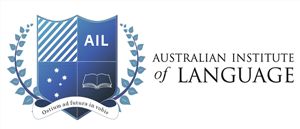
UPDATES: The Australian Government has announced temporary changes to work conditions for student visa holders. Visit the Department of Home Affairs website for more information. COVID-19 and the border (homeaffairs.gov.au)
Finding part-time employment in a different country is a daunting experience, but with a little research and patience you may be able to find a part-time job to suit you.
The job must not interfere with your course as studying is your number one priority. It is not designed to subsidise your course or living costs.
Your visa was granted based on your declaration that you have sufficient funds to cover your living and tuition expenses in Australia. You must continue to have sufficient funds to support yourself and accompanying family members while you are in Australia. You should not rely on work to support yourself or your family while in Australia.
When you have started your course of study in Australia, you can generally work up to 40 hours per fortnight when your course is in session and unlimited hours during scheduled course breaks.
Please see Work Conditions for Student Visa Holders for more information.
When you have started your course of study in Australia, you can generally work up to 40 hours per fortnight when your course is in session and unlimited hours during scheduled course breaks.
Please see Work Conditions for Student Visa Holders for more information.
Looking for work
Community
Notice boards in local shopping centres or public meeting places such as community centres and clubs.
Networking
This is one of the main ways that students get jobs. Talk to your friends, class colleagues, graduating students who may be leaving their casual jobs, friends’ families, local shopkeepers, etc…. anyone & everyone is a potential lead to a job.
Volunteering
Consider volunteering your services as it will help you develop valuable work skills, improve your communication skills, make new friends and contacts and most importantly expand your network. You can explore new career options and add another dimension to your resume. Volunteering Victoria support and consultation for non-profit organisations and is a good place to start.
Door knocking or “cold canvassing”
Approach staff in shops, restaurants or offices and ask to speak to the manager. Send a letter expressing interest in working at a particular place or make a phone call. Most of the fast-food outlets hire staff this way. Have a letter or short resume to leave with the manager. Make sure that you choose a quiet time to approach prospective employers.
Part-Time Work
Part-time paid employment is another good way to meet Australians. Often when you work alongside others, you get to know people well and make good friends with your colleagues. At the same time you can earn some money.
Starting work
When you start work for a new employer (payer) you will be required to complete a Tax File Number Declaration form. The payer will send the form to the ATO (Australian Taxation Office). The information on this form is used by the payer to determine the amount of tax deducted from your pay. Employers (payers) now use electronic pay systems and you will need to provide them with your banking details – name & address of the bank, BSB number (a 6 digit code) and your account number.
Income Tax and International Students
You will need to understand some basic taxation requirements to assist you during your stay in Australia. Generally, taxation laws will affect you when:
• You open a bank account, or
• You commence employment
These situations will require you to obtain a tax file number (TFN) from the Australian Taxation Office (ATO). A TFN is used by the ATO to ensure correct identification of the people it interacts with. This is usually when individuals lodge their income tax returns.
• You open a bank account, or
• You commence employment
These situations will require you to obtain a tax file number (TFN) from the Australian Taxation Office (ATO). A TFN is used by the ATO to ensure correct identification of the people it interacts with. This is usually when individuals lodge their income tax returns.
Taxation
Australia uses the Pay-as-you-go (PAYG) system of tax. This means your employer deducts tax from your wages as you earn). It is not a final assessment of your tax liability but estimation, so that you will not have a large tax bill at the end of the financial year. The financial year is from July 1- June 30.
How is tax calculated?
You have to pay tax on the taxable income earned in one financial year. Taxable income is the total gross income minus allowable deductions (i.e. deductions are expenses you incurred to earn that income). Tax is calculated by applying the tax rates (refer to tax rate table) to taxable income. Any rebates or tax offsets are deducted from this amount, giving you the total tax you have to pay. If you have paid more than this amount you lodge a Tax Return to claim this money back from ATO. If you have not paid enough tax you will have a tax debt.
Income Tax Return
At the end of the financial year, your employer will provide you with a Payment Summaries, previously called Group Certificate. This provides information on your total income and the amount which you have been taxed while working for that particular employer. These Payment Summaries must be attached to your tax return and lodged at your nearest Taxation Office.
If you are required to lodge an income tax return, the following information may assist you: You need to lodge a tax return if tax has been withheld from your earnings as an employee, or from interest credited by a bank, credit union or building society. An assessment will be issued to you advising of any extra tax you have to pay on your income, or alternatively, making a refund of any excess tax you may have paid.
More information on how to lodge a tax return can be obtained from a “Tax Pack” which you can get from any Australian Taxation Office or news agencies. International students are not entitled to Medicare and can seek an exemption to the Medicare Levy in their income tax return. To claim an exemption you need to supply a copy of your Medicare Levy Exemption Certificate which is obtained by applying to Australia Taxation Office using the appropriate form. More details are available at www.ato.gov.au
If you are required to lodge an income tax return, the following information may assist you: You need to lodge a tax return if tax has been withheld from your earnings as an employee, or from interest credited by a bank, credit union or building society. An assessment will be issued to you advising of any extra tax you have to pay on your income, or alternatively, making a refund of any excess tax you may have paid.
More information on how to lodge a tax return can be obtained from a “Tax Pack” which you can get from any Australian Taxation Office or news agencies. International students are not entitled to Medicare and can seek an exemption to the Medicare Levy in their income tax return. To claim an exemption you need to supply a copy of your Medicare Levy Exemption Certificate which is obtained by applying to Australia Taxation Office using the appropriate form. More details are available at www.ato.gov.au
Superannuation
Superannuation is a way of saving for retirement. Australia law requires employers to make contributions for you into a superannuation fund. This applies for full-time, part-time and casual employees.
Most Australian must wait until they are at least 55 or 60 years of age before they are allowed access to the money paid by employers. Changes to Australian Law now allow international students to access their superannuation funds after they have permanently departed Australia, and their visa has expired or been cancelled. The system also allows for temporary residents to start their application the day they arrive in Australia, and add the details of their superannuation funds as they move from job to job.
For more information, go to the ATO website and look for – Departing Australia Superannuation Payments (DASP).
Most Australian must wait until they are at least 55 or 60 years of age before they are allowed access to the money paid by employers. Changes to Australian Law now allow international students to access their superannuation funds after they have permanently departed Australia, and their visa has expired or been cancelled. The system also allows for temporary residents to start their application the day they arrive in Australia, and add the details of their superannuation funds as they move from job to job.
For more information, go to the ATO website and look for – Departing Australia Superannuation Payments (DASP).
Tax rates – How much tax will you pay?
Click here for tax brackets and further details.
Issues to consider -- Financial
Most students find that living with their family in Melbourne can be very expensive. Expect to use your savings. Expenses to consider include: airfares, school fees (see schooling), child care fee, higher rent, educational cost (i.e. lunches, books, excursions, and uniforms), transport, medical insurance, clothing and other necessities.
